Epilepsy is a diagnosis that can leave families feeling lost and overwhelmed. The initial reaction is often denial – a natural attempt to escape the reality – followed by a desperate search for solutions. When families learn that their child’s epilepsy is drug-resistant, meaning medications fail to control the seizures, despair can easily take over. This is precisely where modern medicine comes to help, offering surgical treatment for drug-resistant epilepsy in children. As a result, it becomes possible either to completely eliminate seizures or significantly reduce their frequency, giving children the opportunity to reach their full developmental potential.
Wigmore Women’s and Children’s Hospital recently hosted specialists from their partner, Valley Children’s Healthcare (Madera, California) – a leading pediatric hospital in the United States. The mission members were Dr. Cesar Santos, Medical Director of Neurosciences, and Heather Tripp, Clinical Nurse Specialist in the Pediatric Intensive Care Unit.
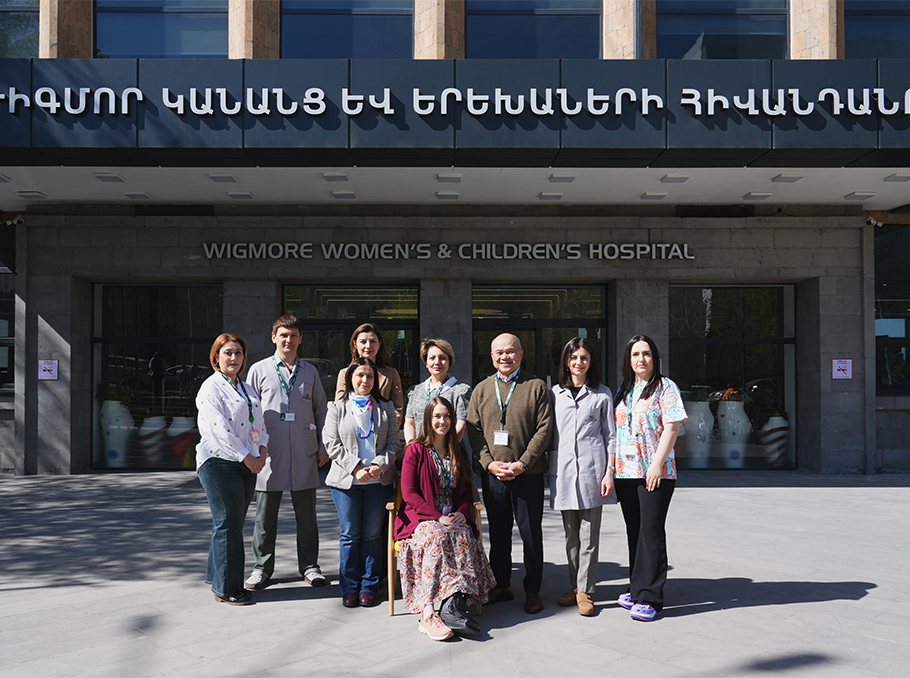
Photo: Mediamax
Led by their expert mentorship and the extensive preparatory work, the neurosurgeons at Wigmore successfully performed surgeries on three children with drug-resistant pediatric epilepsy - the youngest of them just 1.5 years old. According to various estimates, about 4,000 children in Armenia have been diagnosed with epilepsy. However, the real number may be even higher, as many families continue to hide the diagnosis or avoid contacting specialists.
In an interview with Mediamax, specialists from Valley Children’s Healthcare and Wigmore Women’s and Children’s hospital spoke about their intensive work over the past two weeks, shared their impressions, and their belief that every child with drug-resistant pediatric epilepsy should be evaluated to see if they are a candidate for epilepsy surgery.
“A significant step not only for Wigmore, but also for the development of the country’s healthcare system”
Tatevik Koloyan, Chief Development Officer at Wigmore Women’s and Children’s Hospital
Our collaboration with Valley Children’s Healthcare began in year 2023, with the signing of a bilateral memorandum aimed at advancing pediatric healthcare in Armenia. The focus areas of this partnership are defined together considering the priorities for strengthening the healthcare system in the country. I think it is essential that such cooperation is based on the needs of the country.
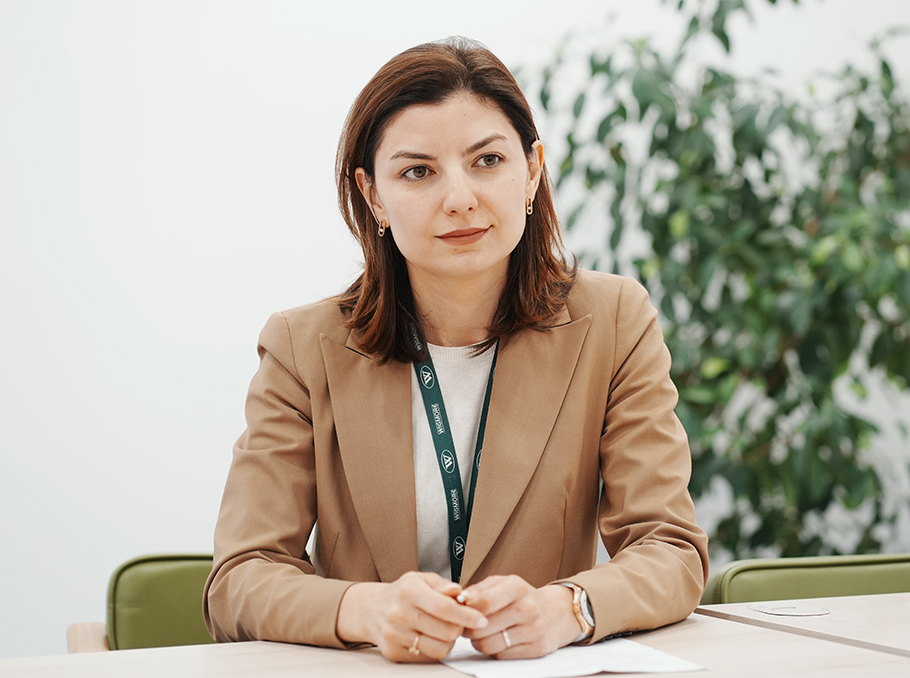 Tatevik Koloyan
Tatevik KoloyanPhoto: Mediamax
Our partnership with Valley Children’s Healthcare includes bilateral medical missions, exchange of knowledge and continuous medical education, Wigmore’s fifth group of specialists will visit Valley Children’s Hospital for observership this summer. As for the American side, the first visit of the professional group took place last year and was more exploratory in nature.
The current visit’s focus was pediatric epilepsy, encompassing the full spectrum from neuropsychological assessment to modern treatment methods and surgical treatment. Our team has been preparing for this visit extensively. Patients with drug-resistant epilepsy, who were identified as likely to benefit most from surgery, were carefully pre-selected and over these days, they successfully underwent surgery. I believe this is a very important development, not only for Wigmore, but for the advancement of Armenia’s overall healthcare system.
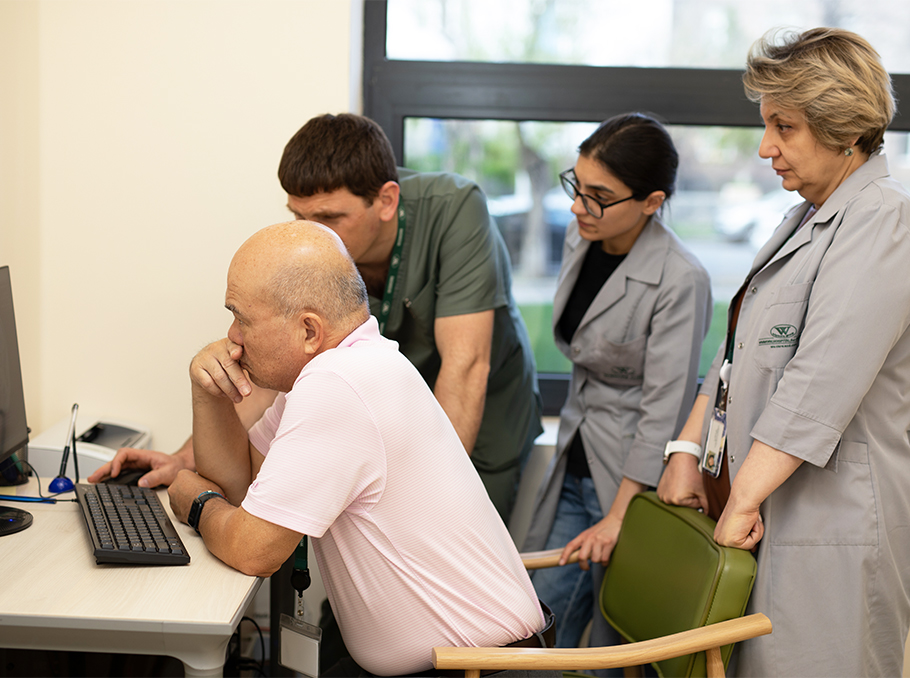
Photo: Wigmore
Often, skilled specialists visit Armenia to provide consultations, perform surgeries, and then they leave. While this is undoubtedly valuable, for us, the priority is to invest in such cooperation by educating and building a team of skilled specialists within the country.
Our partnership with Valley Children’s Healthcare is set to be ongoing, with the focus of future visits determined by our priorities in pediatric healthcare. One key area, for example, is the development of pediatric emergency care in Armenia.
“From Despair to Hope”
Eduard Asatryan, Head of Pediatric Neurosurgery Service, Wigmore Women’s and Children’s Hospital, Pediatric Neurosurgeon The possibility of surgery is a beacon of hope for families who feel trapped after receiving a diagnosis of pediatric epilepsy.
During our first professional visit to Fresno (Valley Children’s), we gained firsthand insight into how to prepare for these surgeries, how the procedures are performed, and what postoperative complications to anticipate. In the summer of 2024, a team from Valley Children’s Healthcare, visited Wigmore to assess our technical infrastructure and staffing capabilities. This visit was then followed by months of video-conference discussions.
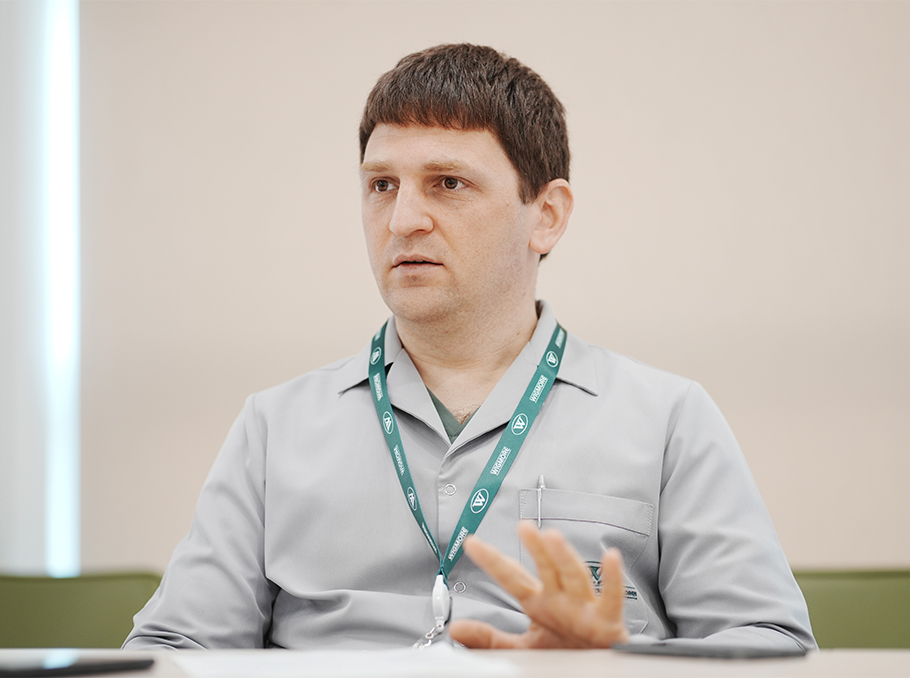 Eduard Asatryan
Eduard AsatryanPhoto: Mediamax
As a result, just a few days ago, under the mentorship of Dr. Cesar Santos, at Wigmore we performed surgery on our first and youngest patient (1.5 years old). I can say that the surgery was successful – there were no postoperative complications or seizures (smiles - ed.). It is important to emphasize that in cases of drug-resistant epilepsy, surgery should be performed as soon as possible when a child’s psychomotor development is most active, and freeing the child from seizures is essential for their healthy growth.
I highly value the support of our partners: when undertaking such complex surgeries, the presence of an experienced mentor is vital.
The early postoperative phase can bring unexpected challenges, but with experienced colleagues by your side, you feel more confident in your actions.
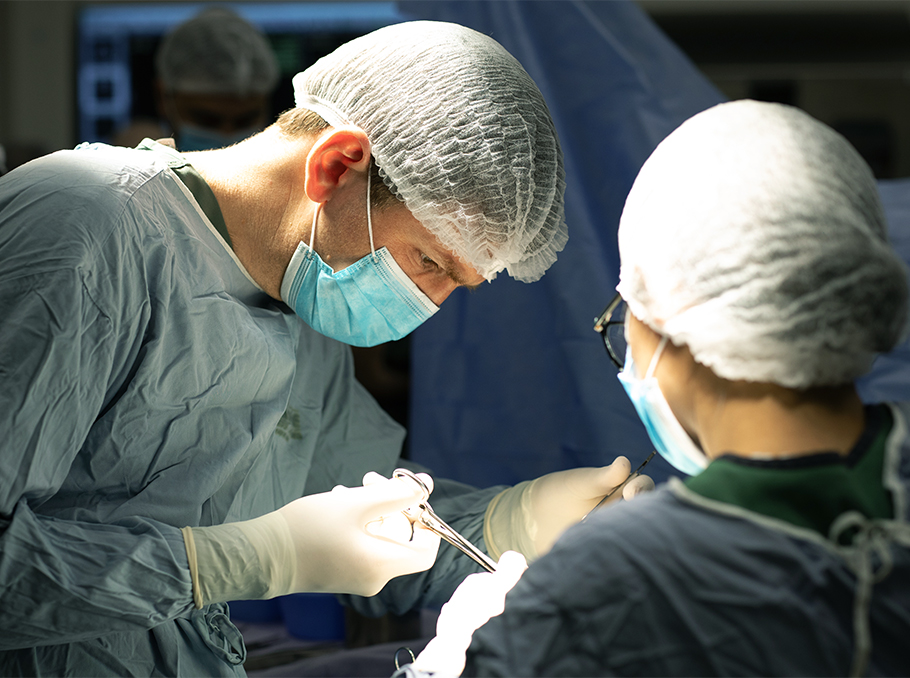
Photo: Wigmore
In this short period, we have received numerous applications from parents whose children have been diagnosed with epilepsy and want to undergo surgery. Many families and patients are waiting for the next visit of our colleagues from Valley Children’s Healthcare.
“We aim to educate and develop local specialists in Armenia”
Nune Kuyumjyan, Head of Pediatric Neurology service, Wigmore Women’s and Children’s Hospital, Pediatric Neurologist
Unfortunately, there are families in our society who try to hide or deny their child’s epilepsy diagnosis. First and foremost, the parents of these children need increased awareness of what epilepsy is, how it manifests, and what treatment options are available to improve their child’s condition. Many people still believe that epilepsy diagnosis means that the child cannot live a normal life. But that is not true.
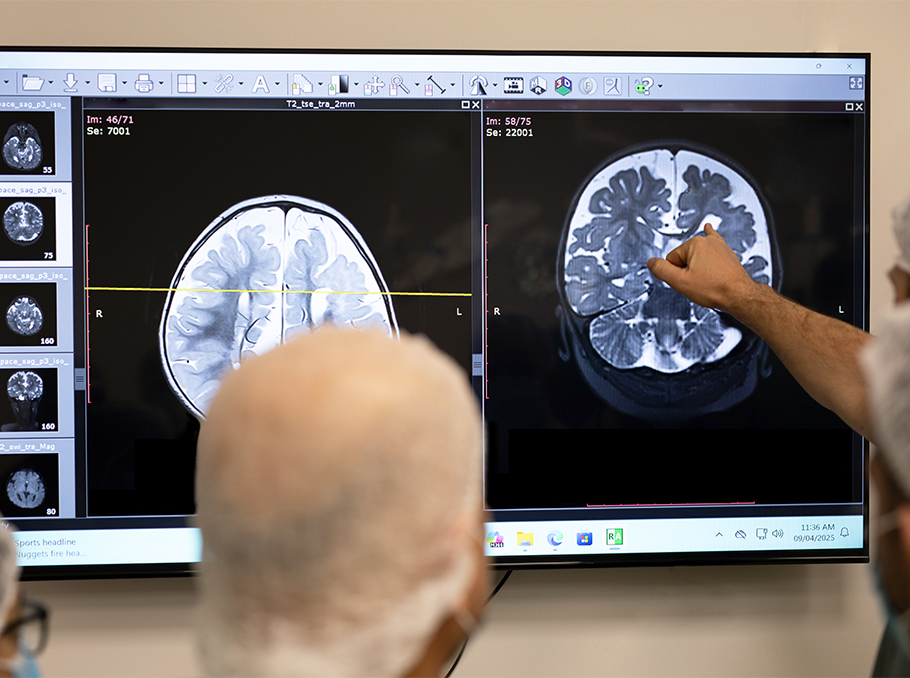
Photo: Wigmore
There are forms of epilepsy where seizures occur infrequently and may eventually resolve on their own, without the need for intervention. However, in other cases, the condition requires ongoing medication and, in a situation where medications no longer help and epilepsy becomes drug-resistant, surgery may offer a viable solution.
At Wigmore, we have already begun working closely with parents, raising awareness and providing targeted education through our “Epilepsy School” initiative, including teaching how to support a child during a seizure.
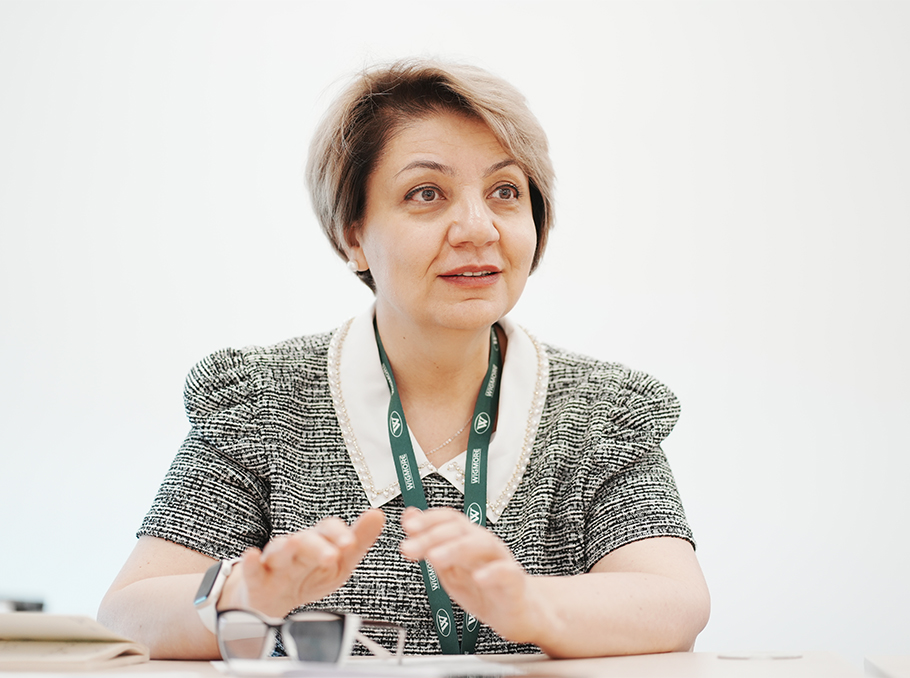 Nune Kuyumjyan
Nune KuyumjyanPhoto: Mediamax
An epilepsy diagnosis can leave many families feeling overwhelmed and desperate. In an attempt to deny or avoid it, they often turn to non-evidence-based treatment, until they realize that their child needs professional help. Through the “Epilepsy School”, we not only provide parents with reliable professional information, but also try to form a trusting, and supportive community where parents will feel that they are not alone with their fears and experiences.
Unfortunately, childhood epilepsy is quite prevalent in Armenia. According to the data from the Comprehensive Epilepsy Center, approximately 4,000 children have been diagnosed with this condition. However, the real number is likely higher, as many families choose not to seek medical help, often hiding the diagnosis. As Dr. Cesar Santos noted during his previous visit, around 65% of epilepsy cases can be effectively managed with medication, the remaining 35% are drug-resistant, meaning they require surgical intervention.
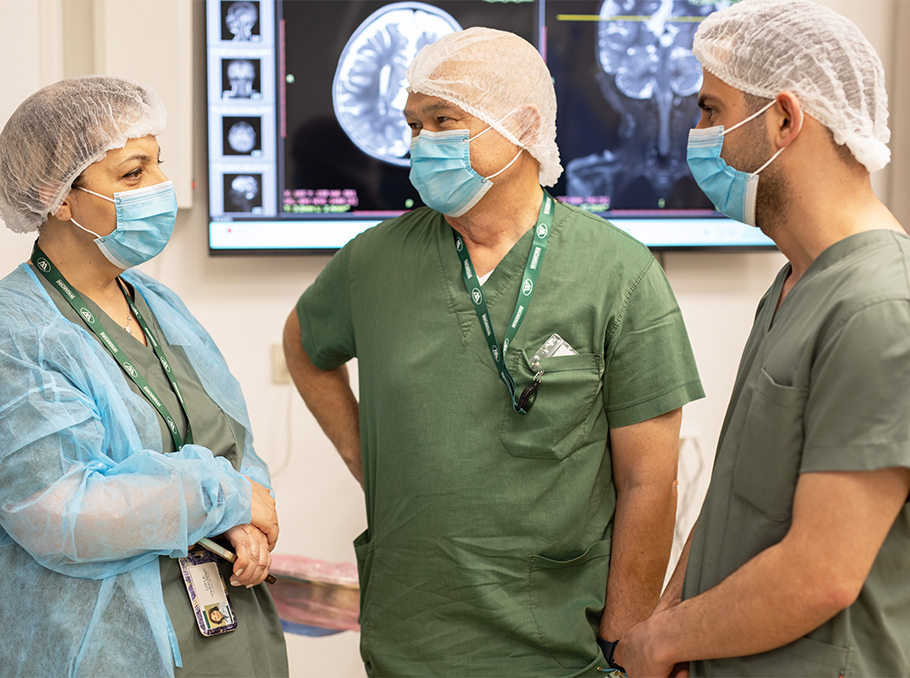
Photo: Wigmore
Until now, surgical treatment for pediatric epilepsy was only possible if the patient traveled abroad or if a visiting team of specialists came to Armenia to perform a limited number of operations. At Wigmore, our goal is to educate and develop local specialists, so that the entire country can feel more confident in the fight against epilepsy. This will enable us to help more patients directly, here at home. I believe this will also shift public attitudes toward an epilepsy diagnosis.
“I will never forget the words of the father of one of the children who underwent surgery – this is exactly why we do what we do”
Dr. Cesar Santos, Medical Director of Neurosciences, Valley Children’s Healthcare
This is my second visit and my impression has not changed (smiles – ed.). I’ve always been impressed by how nice Armenia is, how nice this hospital is and how forward thinking they are. And that’s very impressive. That should not be taken lightly because that’s a big effort.
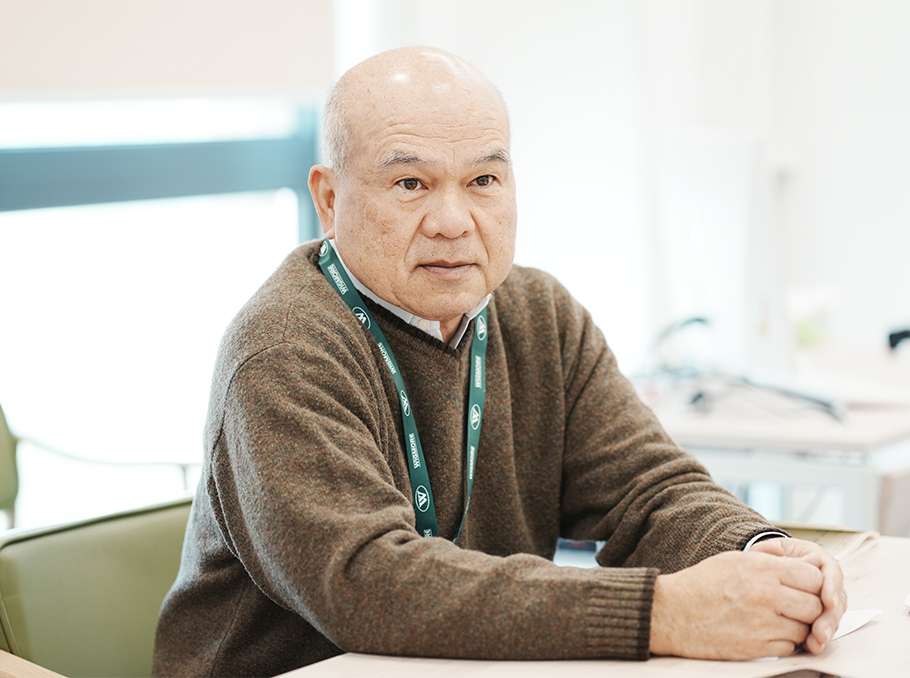 Cesar Santos
Cesar SantosPhoto: Mediamax
The first two weeks of doing the epilepsy surgery has been very successful. We have done three surgeries in such a short period of time, but I do not say that it took us two weeks to prepare․․․ It took us a few months to prepare for these two weeks. With that preparation, I think we were ready and were able to do this type of surgeries. And I’m happy to say that all our patients are doing well and are seizure-free.
I feel like we have been working with Wigmore team for a long time. We work well together. There is a lot of respect, exchanges of ideas. I told you about how forward-thinking Wigmore is, how receptive they are, how willing they are to improve care.
Once an employee from Wigmore greeted me and said thank you very much for coming here, we appreciate what you do for Wigmore, but the Armenian people appreciate what you do together for the country.

Photo: Wigmore
People must know that epilepsy is not something you should hide. We need to talk about community education.
We saw the dad of the kid we operated on. He is a peacekeeper, so, he knows what service to Armenia means. He said, ‘Thank you for what you do. I know Hayk is just one person, and I thank you for what you did for him. But I really thank you [Wigmore] for what you guys are doing here for the people of Armenia.’ I get emotional, because that’s why we do what we do. I will never forget that.
“It is obvious that the Wigmore team shares the same goals”
Heather Tripp, Clinical Nurse Specialist in Pediatric Intensive Care, Valley Children’s Healthcare
This is my first visit to Armenia and this has been such a wonderful trip. The country is so beautiful. The hospitality is beyond anything. Being in this hospital and just knowing that it is barely three years old and seeing the amazing work that has been done in that short amount of time is incredibly impressive.
I enjoyed getting to be here and share some of the information from our hospital. I really wanted to empower the nurses and to show them that it doesn’t matter whether you’ve been doing this for six months or for sixteen years, we all have things to learn. We learn new things every day (smiles – ed.).
 Heather Tripp
Heather TrippPhoto: Mediamax
It is very obvious that everyone cares so much about the patients here. The patients are at the center. If we say ‘this is going to make it better for the patients,’ everyone is on board and so open to those discussions. So, I think that is the hallmark of a healthy hospital. (smiles - ed.). As someone who has worked in healthcare for 13 years, I think it’s very important for the people who work here to be a good team and make sure they’re focused on the same goal. And it is very obvious here. No matter what I’m doing here at the hospital or where I am, the important thing is that everyone has the same goal and is working as a team.
“A skilled nurse should be able to provide psychological support when working with a pediatric patient”
Sona Vardanyan, Pediatric Intensive Care Unit nurse, “Wigmore Women’s and Children’s Hospital”
The visit of specialists from Valley Children’s Healthcare was impressive and informative. In cases of epilepsy surgery, nursing care at PICU plays a crucial role, particularly in the postoperative phase. Each morning, we conducted patient rounds with nurse Heather Tripp, discussing each case.
During the visit she also led a comprehensive training session, guiding us through the nature of epilepsy and highlighting key points to monitor after surgery. It is important to know the warning signs that require an immediate response.
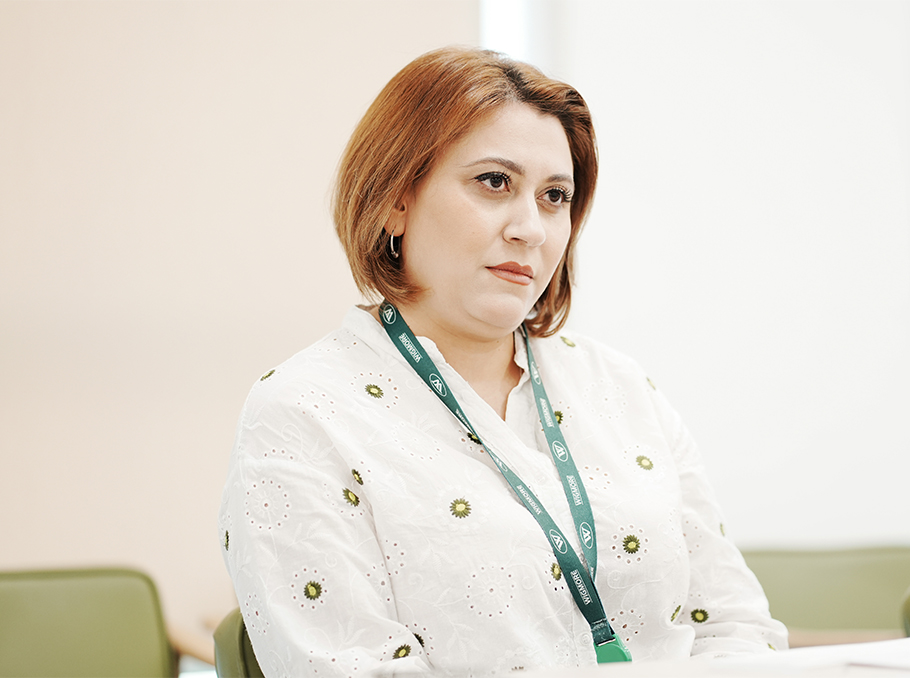 Sona Vardanyan
Sona VardanyanPhoto: Mediamax
In general, we were privileged to have Heather teaching us every day for about 1.5 hours (smiles – ed.). She also brought with her a generous supply of toys and developmental games, designed to comfort and distract children at PICU during painful procedures. They are also useful during the recovery phase. More broadly, psychological support is essential when working with the pediatric patients, and a skilled nurse should be able to do this.
I believe that in our profession, continuous education is crucial, because this field is developing rapidly in the world, and we shall not lag behind (smiles – ed.). At Wigmore, we are given this opportunity and for that, we are truly grateful (smiles – ed.).
“It truly is a dream that every child with drug-resistant epilepsy might one day have the opportunity for surgery”
Hrachuhi Ghazaryan, Chief Medical Officer, Wigmore Women’s and Children’s Hospital, MD, Pediatrician
Managing epilepsy requires a multidisciplinary approach and close collaboration across specialties. The preparation leading up to these surgeries involved not only neurologists and neurosurgeons, but also specialists from the emergency department, psychologists, and developmental pediatricians.
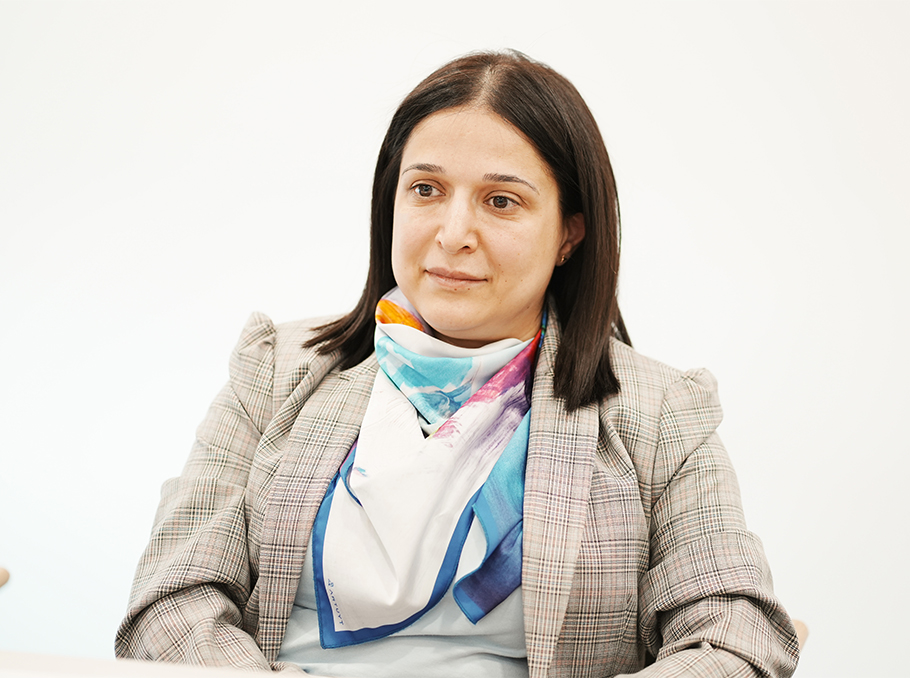 Hrachuhi Ghazaryan
Hrachuhi GhazaryanPhoto: Mediamax
This was a major undertaking, and I would especially like to highlight the invisible but critical contributors of this process: our EEG (electroencephalography) team and engineers. It was thanks to their work that the entire “chain” operated seamlessly.
After the surgeries, our entire team is very excited and proud (smiles – ed.) to have launched such an important initiative.
Over the past days, I’ve received many letters – not only from parents of children with epilepsy, but also from those whose children are unaffected – expressing gratitude that surgical treatment for epilepsy is now available at Wigmore.
In just two weeks, through discussions, training, and joint work on the ground, we have made enormous progress. We’ve taken a major step forward. We will preserve, apply, expand, and make this experience sustainable.

Photo: Wigmore
Today, our focus has been largely on the work of the doctors and nurses treating pediatric epilepsy – but we must also recognize the crucial role of parents. The families of these children have been waiting with great hope for the arrival of our American colleagues, and daily, we hear words of gratitude from the parents of those three children who underwent surgery.
It truly is a dream that every child with drug-resistant epilepsy might one day have the opportunity for surgery. The role of the state is also critical here. These surgeries are expensive, requiring extensive testing, and in the case of these three surgeries, the state covered all the costs, relieving the families of the financial burden.
Yana Shakhramanyan
Photos by Agape Grigoryan
















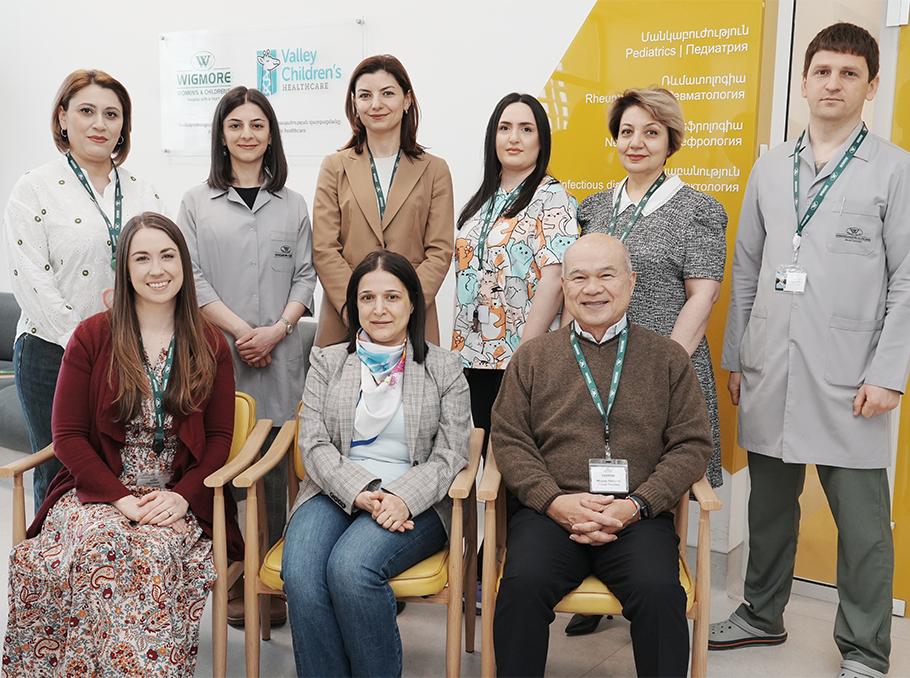

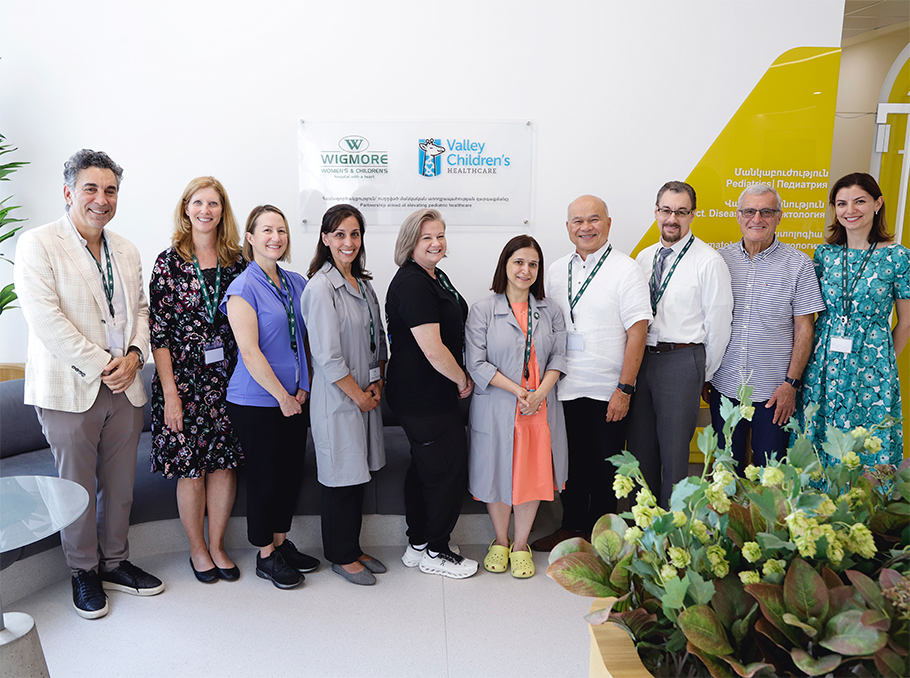







Comments
Dear visitors, You can place your opinion on the material using your Facebook account. Please, be polite and follow our simple rules: you are not allowed to make off - topic comments, place advertisements, use abusive and filthy language. The editorial staff reserves the right to moderate and delete comments in case of breach of the rules.